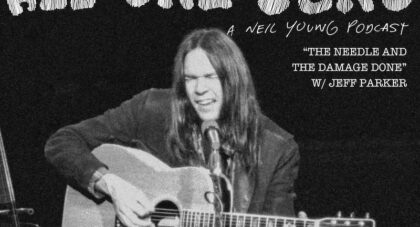"I saw the writing on the wall, with the Americana movement...I started to see country-western reproduction shirts at the Gap, and once something gets that big, it's over." - Darin Wald, Big Ditch Road.
"Do you mean Gram Parsons is dead?" - Larry Oster-Burg (Michael Shannon), Grand Theft Parsons
Historical periods, art movements, ice ages; you're never really sure when one begins or ends. Art especially, with its constant action/reaction sequences, is vaguely defined from one movement to the next. We do tend to agree, however, that there is a start . . .
Only the good shit. Aquarium Drunkard is powered by its patrons. Keep the servers humming and help us continue doing it by pledging your support.
To continue reading, become a member or log in.


